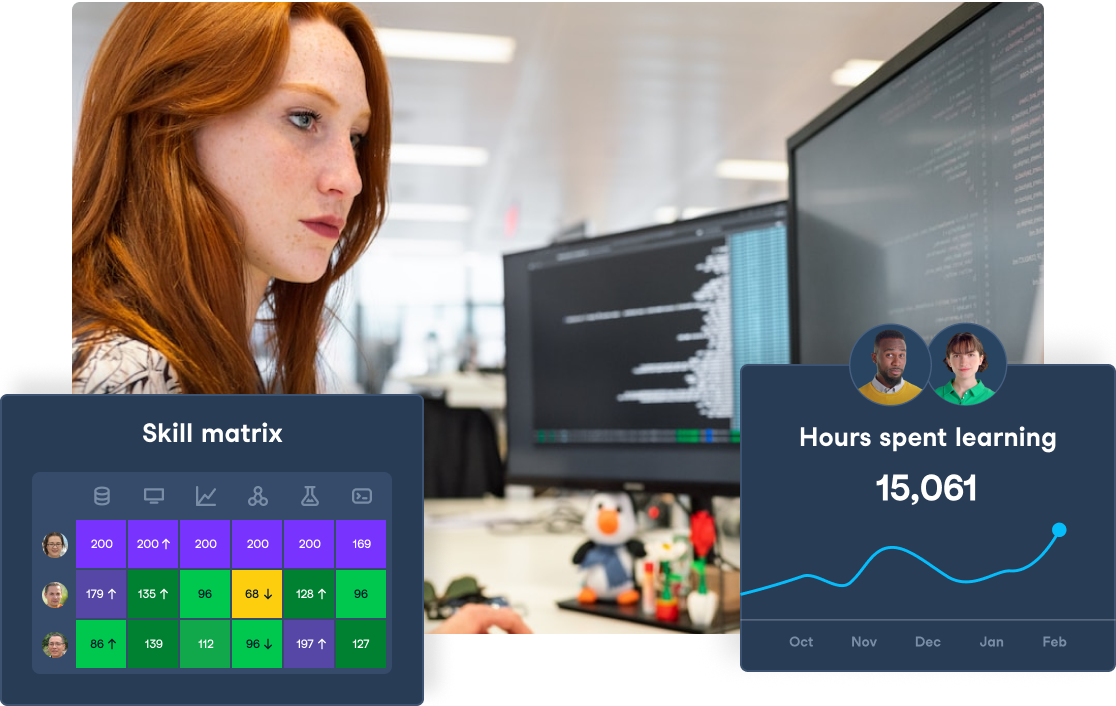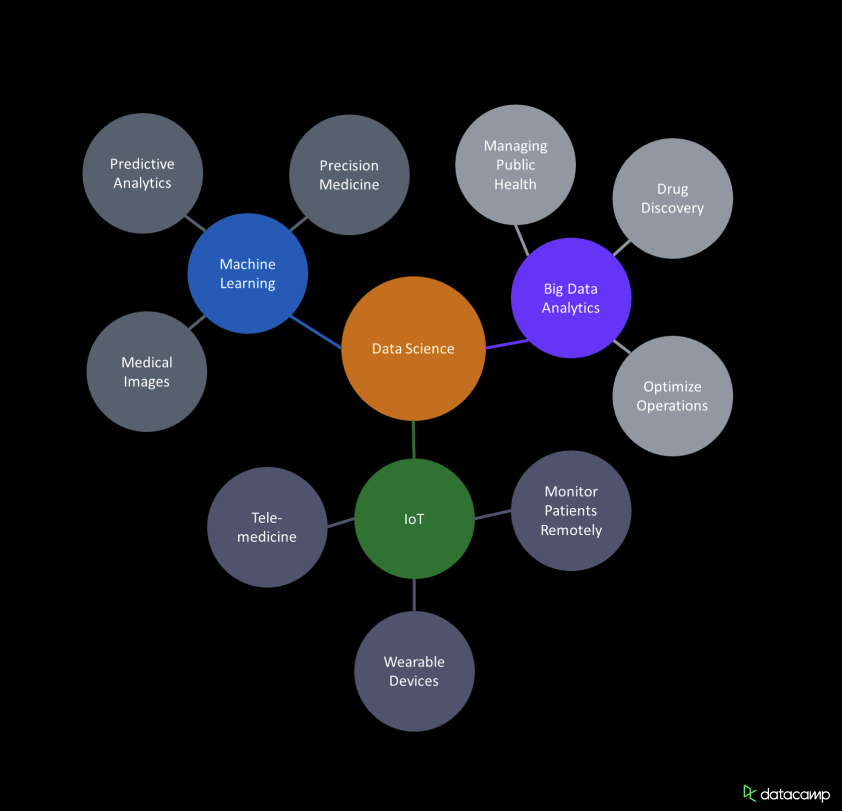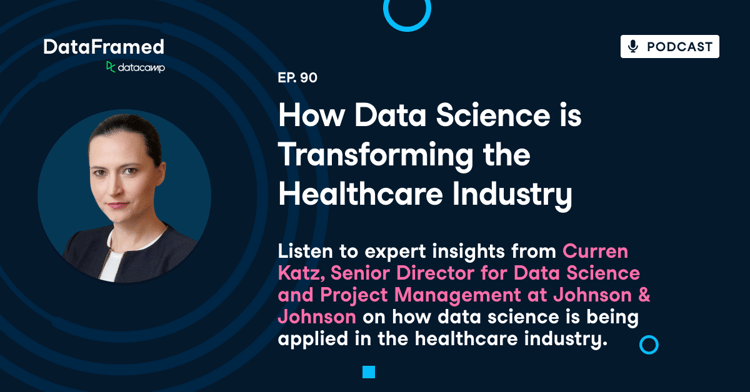Track
Elevate Your Team's Data Skills
Train your healthcare team with DataCamp for Business. Comprehensive data and AI training resources and detailed performance insights to support your goals.

Data is not going away and our ability to manage and analyze large datasets will continue to increase over time. This will ultimately lead to greater insights in terms of new associations or insights that may improve patients' quality of care, staffing and resource availability, and decision making processes for healthcare administrators.
Alex Duman, Data Analyst at Aptive Resources
Just understanding patients, their journeys, where they’re facing challenges, how they’re experiencing the healthcare system, and where we’re not maybe delivering care in the way we should. Data can help us see that and help us deliver a better experience, deliver a more personalized tailored experience on a biological level as well as just an individual level: preferences, ways that we’re interacting, and ways that we’re seeking care.
Curren Katz, Senior Director for Data Science and Project Management at Johnson & Johnson
The benefits of data science in healthcare are huge: better patient outcomes, more efficient hospitals, and faster medical research. But there are challenges too. Protecting patient data, integrating different data sources, and finding enough skilled data scientists to meet the demand are some of the key issues.
Adam Baker, CEO at Perspectives Behavioral Health Management LLC
We need to think of healthcare data quality in the context of all the use-cases that we want to power, and not only about one segment or one particular use case. So when we build products that power care navigation, for example, there are some metrics that will be important to assess for clients: for example, accuracy and coverage, and then there are other outputs that we should assess to ensure that what we are delivering is actionable for the ultimate end user, which is the person seeking care. So I think expanding our scope and line of vision will help us create effective solutions to the problems that are preventing more people from being able to access the care that they need and want.
Sunna Jo, Senior Data Scientist at Ribbon Health
Training 2 or more people? Check out our Business solutions
Get your team access to the full DataCamp library, with centralized reporting, assignments, projects and more

Our product assurance manager created a track and selected the most relevant courses. That's about 49 hours. He took the data analyst track, and he then removed some of the SQL modules because we don't use them in our organization. Then he included extra modules on stats and visuals, because our scientists are often asked to present data visually.
Faye Wakefield, Senior HR Specialist at LumiraDx
We don't want to rely on centralized analytics teams, where requests and tickets pile up, causing huge backlogs and decisions being stuck. We aim for a self-serve culture, where everyone can tell their own data story.
Benjamin Taylor, Data Enablement Lead at Specsavers
Advance Your Team's Data Science Skills
Unlock the full potential of data science with DataCamp for Business. Access comprehensive courses, projects, and centralized reporting for teams of 2 or more.




